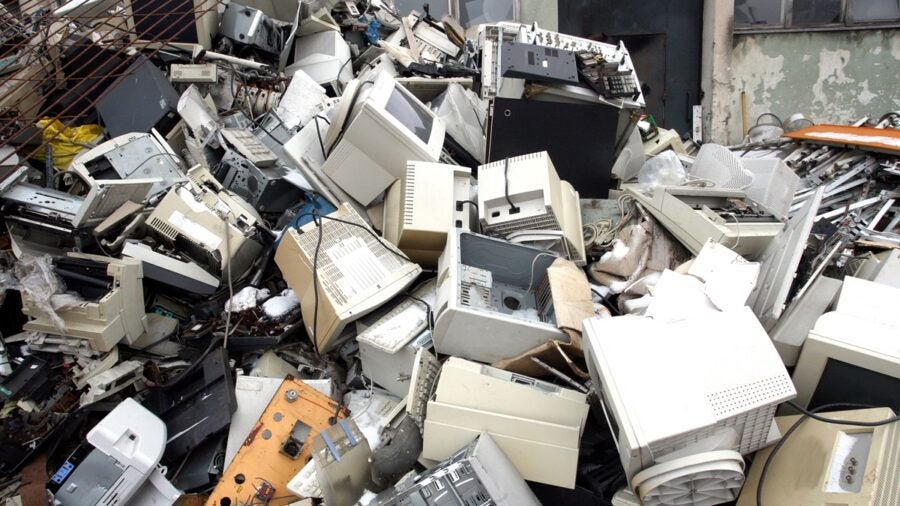
At this time of year, annual sustainability compliance reports from a range of business divisions start to stack up on my desk. I prefer to wait to review these until I have enough of them to give me a holistic picture of the whole business’s sustainability – and I hope that other leaders take the same approach.
As I look towards the horizon of the technology industry, I see we are approaching a crossroad. Here, we will be tasked not only with advancing innovation, but also with redefining the ethics and sustainability of global business.
The Corporate Sustainability Due Diligence Directive (CSDDD) establishes due diligence requirements within the European Union and holds businesses accountable for their human rights and environmental impact. It’s a pivotal piece of legislation that asks: what kind of legacy will we create as the stewards of the digital age?
The CSDDD should not be dismissed as just another compliance framework. It’s a wake-up call to the tech industry to look beyond growth at any cost and embrace our role as stewards of the planet. For the technology sector, this is a chance to align innovation with the European Green Deal and the UN Sustainable Development Goals (SDGs).
Using technology to find sustainable solutions
Naturally, this isn’t a simple endeavour. Supply chains are global and complicated, particularly so for technology companies.
But today we have powerful tools at our disposal to keep track of these supply chains. Technologies like blockchain can help us trace materials, ensure ethical sourcing and uphold labour standards across borders. AI-powered risk-assessment tools can further identify vulnerabilities in supply chains before they become liabilities.
Beyond emissions, the directive also shines a light on areas often relegated to the sidelines, such as e-waste management and energy efficiency.
Global e-waste reached a staggering 50 million tonnes in 2022, highlighting the urgent need for industry-wide solutions. Imagine the impact if the whole tech sector adopted recycling and refurbishment programs capable of diverting 80% of that waste from landfills.
Similarly, data centres, the lifeblood of our digital world, consume nearly 2% of the world’s electricity. Can we, as innovators, redesign these centers to operate with renewable energy and energy-efficient technologies, setting a benchmark for sustainable infrastructure?
Economic burden or competitive advantage?
Concerns linger that the CSDDD may impose an economic burden. However, I believe that a forward-thinking approach, underpinned by technological innovation, can transform compliance into a competitive advantage, attracting environmentally conscious customers and investors.
History teaches us that constraints often drive creativity. The emergence of the data privacy sector, for example, transformed the tech landscape, creating not just compliance solutions but entirely new industries.
The CSDDD presents us with a similar opportunity to innovate in areas like sustainable software development, energy-efficient application design and circular economy models. It’s a chance to turn necessity into invention.
The real question, then, is: are we prepared to step up?
The directive also compels us to rethink accountability. Measuring and reporting environmental and social impact must become as integral to our operations as tracking revenue or customer satisfaction. Precision and transparency are non-negotiable tenets of modern business. Today’s consumers and investors increasingly align their decisions with their values, rewarding enterprises that prioritise sustainability. Early adopters of the CSDDD’s principles will not only mitigate risks but also attract the loyalty of these conscientious stakeholders.
How the tech sector can lead with purpose
But this isn’t just about our individual companies, it’s about a collective vision for the future.
Picture a world where every link in the supply chain is traceable and transparent, where the carbon footprint of every app, cloud transaction or component is meticulously accounted for and minimised. Imagine an industry where the concept of waste is obsolete, replaced by systems designed for reuse and renewal. This is not a pipe dream but an attainable reality if we act decisively today.
As a leader in this dynamic sector, I recognise the challenges that lie ahead. But more importantly, I also see an opportunity for us to lead with purpose. The CSDDD is not a burden but an invitation. It calls on us to reimagine our roles, not just as drivers of economic growth but as architects of a sustainable future.
Cross-industry partnerships, such as those between tech firms and renewable energy providers, will be critical in addressing infrastructure gaps and accelerating progress.
Policymakers must also engage with the tech industry to create ambitious yet pragmatic frameworks. These collaborations are essential to close the gaps in infrastructure and financing that stand in the way of the CSDDD’s ambitious targets.
The choice is clear. By stepping up to the challenges posed by the CSDDD, the tech industry can solidify its reputation as a leader in sustainability. This is our chance to show that we are not only participants but architects of a sustainable future.
Mohit Joshi is the CEO of Tech Mahindra, an IT services consulting company.

At this time of year, annual sustainability compliance reports from a range of business divisions start to stack up on my desk. I prefer to wait to review these until I have enough of them to give me a holistic picture of the whole business’s sustainability – and I hope that other leaders take the same approach.
As I look towards the horizon of the technology industry, I see we are approaching a crossroad. Here, we will be tasked not only with advancing innovation, but also with redefining the ethics and sustainability of global business.
The Corporate Sustainability Due Diligence Directive (CSDDD) establishes due diligence requirements within the European Union and holds businesses accountable for their human rights and environmental impact. It’s a pivotal piece of legislation that asks: what kind of legacy will we create as the stewards of the digital age?
